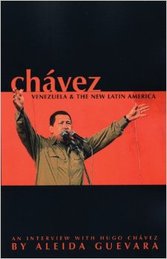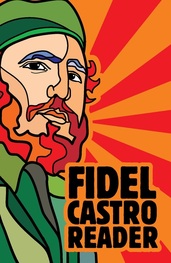Terror subsequently became institutionalized. A Revolutionary Tribunal was established in March 1793 in order to prevent further massacres, but the tribunal itself became an instrument for killing. It has been calculated that there were 16,594 executions between March 1793 and August 1794. The victims were priests who refused to accept the republican constitution, aristocrats who engaged in counterrevolutionary activities, merchants who were hoarding food in order to profit from a higher price, and revolutionaries who were too moderate in their views or who were opposed to the dechristianization campaign or to the Terror itself. They were executed without regard for rights of due process (Soboul 1975:384-88; Ianni 2011:105-7).
The French historian Albert Soboul implies that the Terror was functional. He maintains that it provided the revolutionary government with the coercive power to impose rules, thus restoring the authority of the State, and that it contributed to the formation of national solidarity by silencing for a time the selfish voices that represented particular interests (1975:388-89). In a similar vein, the Argentinian historian Valeria Ianni writes that "there is no doubt that the Terror saved the Revolution” (2011:107).
In my view, the Terror was not functional, especially if we analyze it from the perspective of the long-term struggle of popular revolutions in the world. Revolutionary processes are above all battles of ideas, and a long-standing claim of counterrevolutionaries has been that a structure that gives real power to the people will degenerate into mob violence. Popular revolutions must demonstrate in practice that this charge is not true. The revolutionary vanguard has the duty to constrain the normal tendency of the people toward vengeance and to lead the people in conduct that is guided by ethical values and respect for rights of due process (see “Popular assemblies” 11/28/2013). During the French Revolution, the leaders of the French Revolution capitulated to popular instincts; they did not fulfill their duty.
Ianni suggests that the Terror was justifiable, taking into account the social context: the people were demanding the Terror, and the revolution was threatened by foreign armies and the mobilization of counterrevolutionary forces within the nation (2011:74, 102-7). But there were those at the time who understood that it was wrong. Among them was Camille Desmoulins, an outstanding journalist who had written a passionate pamphlet in defense of popular revolution in 1789 and who had called the people to arms two days before the taking of the Bastille. By 1793, he was speaking out not only against the Terror but also against religious persecution and the expansionist intentions of the French Republic. Desmoulins was sent to the Guillotine on April 5, 1794 (Soboul 1975:123-24, 138, 165-66, 287, 364-68, 376-77, & 571; Ianni 2011:35).
The Terror contributed to the emergence of the commonly-accepted erroneous concept that violence and revolution are intertwined and that revolution is the violent displacement of the ruling class. This confusion on the meaning of revolution is shared by counterrevolutionaries and pretended revolutionaries alike. As we have seen (“Popular militias” 11/30/2013), revolutions and revolutionary governments must develop structures for the use of force in their defense, but in this respect they are no different from human societies since the agricultural revolution. Legitimate self-defense is an unavoidable component of popular revolution, but popular revolution is in essence and by definition the taking of political power from the elite and governing in accordance with the interests of the popular sectors (see “What is Revolution?” 11/14/2013). There are various social and political contexts in which revolutions emerge, and as a result, there are various ways for the political representatives of the popular sectors to take power. The taking of power does not always require the use of force, even though it always will require the organization of legitimate self-defense. At the same time, the violent overthrow of a government is often not a revolution, but simply the expression of political conflicts within the ruling class. Violent political acts are not necessarily revolutionary; revolutionary action is not necessarily violent. And illegitimate violence can never serve revolutionary aims.
Those of us who seek a just, democratic and sustainable world have the duty to study the revolutionary processes and to learn from their insights, and also to identify and learn from their errors. The Revolutionary Terror of the French Revolution was an historic error and historic crime. Revolutionary processes must always conduct themselves in accordance with the values of that more just and democratic world that they seek to create.
References
Ianni, Valera. 2011. La Revolución Francesa. México: Ocean Sur.
Soboul, Albert. 1975. The French Revolution 1787-1799: From the Storming of the Bastille to Napoleon. New York: Random House, Vintage Books.
Key words: Third World, revolution, colonialism, neocolonialism, imperialism, democracy, national liberation, sovereignty, self-determination, socialism, Marxism, Leninism, Cuba, Latin America, world-system, world-economy, development, underdevelopment, colonial, neocolonial, blog Third World perspective, French Revolution, violence, terror






 RSS Feed
RSS Feed





